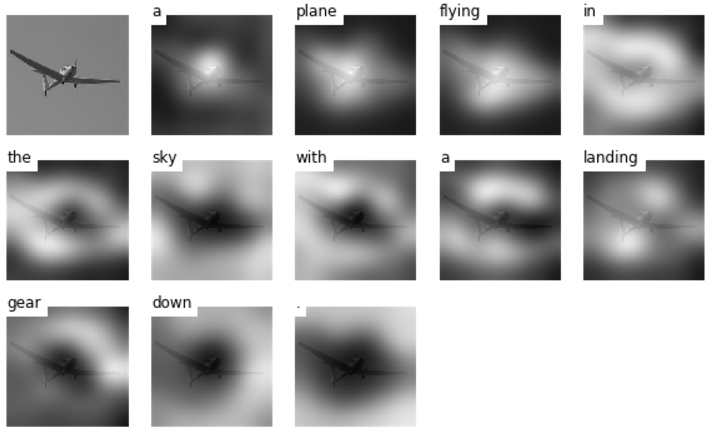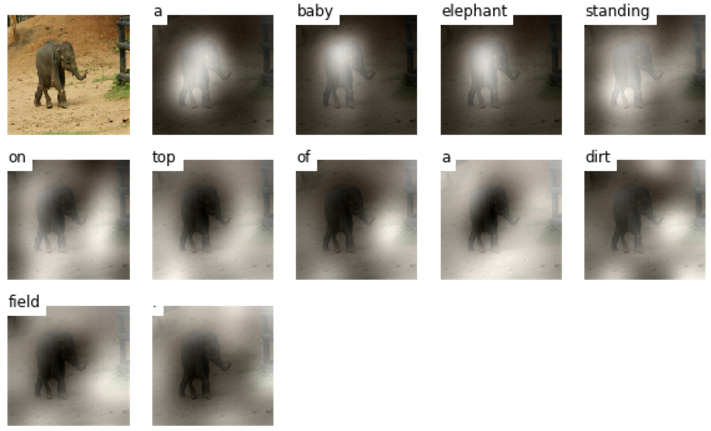TensorFlow implementation of [Show, Attend and Tell: Neural Image Caption Generation with Visual Attention] (http://arxiv.org/abs/1502.03044) which introduces an attention based image caption generator. The model changes its attention to the relevant part of the image while it generates each word.
Referenced author's theano code can be found [here] (https://github.com/kelvinxu/arctic-captions). Additionally, this repo is an upgraded version of the existing tensorflow implementation. You can find it [here] (https://github.com/jazzsaxmafia/show_attend_and_tell.tensorflow).
For evaluation, clone pycocoevalcap as below.
$ git clone https://github.com/tylin/coco-caption.gitThis code is written in Python2.7 and requires TensorFlow. In addition, you need to install a few more packages to process MSCOCO data set. To install the required python packages, run:
I have provided a script to download the MSCOCO image data and VGGNet19. Downloading the data may take several hours depending on the network speed. Run commands below then the image data will be downloaded in the image directory and VGGNet will be downloaded in the data directory.
$ git clone https://github.com/yunjey/show-attend-and-tell-tensorflow.git
$ cd show-attend-and-tell-tensorflow
$ pip install -r requirements.txt
$ chmod +x ./download.sh
$ ./download.shFor feeding the image to VGGNet, we should resize the MSCOCO image data to fixed size of 224x224. Run command below then train2014_resized and val2014_resized will be created in the image folder.
$ python resize.pyBefore training the model, you have to preprocess the MSCOCO data set to generate captions.pkl and features.hkl. captions.pkl is a numpy array in which each row contains a list of word indices. Also, features.hkl is a numpy array which contains activation maps extracted from conv5_3 layer of VGGNet.
To generate captions.pkl and features.pkl, run :
$ python prepro.py --batch_size=50 --max_length=15 --word_count_threshold=3$ python train.py --batch_size=64 --epoch=15 --lr=0.001 --model_path='./model/lstm' --log_path='./log'
For real time debugging, tensorboard visualization is provided.
Open new terminal. Run command below and open http://localhost:6005/ into your web browser.
$ tensorboard --logdir='./log' --port=6005 For evaluating the model, please see evaluate_model.ipynb.
####Training data
#####(1) Generated caption: A plane flying in the sky with a landing gear down.

#####(2) Generated caption: A giraffe and two zebra standing in the field.

####Validation data
#####(1) Generated caption: A large elephant standing in a dry grass field.

#####(2) Generated caption: A baby elephant standing on top of a dirt field.

####Test data
#####(1) Generated caption: A plane flying over a body of water.

#####(2) Generated caption: A zebra standing in the grass near a tree.

